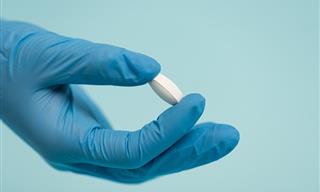The World Health Organization (WHO) says that about 422 million people globally live with diabetes. The most common version of the illness is type 2 diabetes, which develops when the pancreas makes less insulin than the body needs, and the cells stop responding to insulin.
Some lifestyle changes, such as exercising regularly and following a healthy diet may help reduce your risk of diabetes. New research suggests that the risk of type 2 diabetes drops substantially in people who drink at least 4 cups of tea every day.
Read Also: These Healthy Habits Are Not So Beneficial For Diabetes
Drinking tea for lowering diabetes risk

In the study, the researchers analyzed data from 19 previous experiments with a total of more than one million participants from eight countries. None of the participants had any prior history of type 2 diabetes. They observed how often participants drank black, green, and oolong tea. Some drank less than one cup, some had one to three cups, and others consumed four or more cups daily.
The researchers followed the participants for over 10 years and found that people who drank at least four cups of tea daily were 17% less likely to develop type 2 diabetes than those who consumed little or no tea. The analysis also found that the people who drank between one and three cups of tea daily had a 4% lower risk of type 2 diabetes than those who didn't consume tea at all. Importantly, the results remained the same regardless of tea type, gender, and living area.
Read Also: Studies Prove Drinking Green Tea Can Prevent Diabetes
“Our results are intriguing because they imply that people can do something as easy as drinking four cups of tea a day to potentially lower their chance of acquiring type 2 diabetes,” said Xiaying Li of the Wuhan University of Science and Technology in China, the lead author of the study. The authors presented their findings at the European Association for the Study of Diabetes (EASD) Annual Meeting in Stockholm, Sweden.
The results of this new research haven’t been published in a peer-reviewed medical journal.

According to the Academy of Nutrition and Dietetics (AND), black, green, and oolong tea are made from the same plant but have different flavors because of the diverse ways their leaves are processed. The researchers believe that particular components in tea, such as polyphenols (bioactive compounds found in plants, including tea leaves), may help reduce blood glucose levels. However, a sufficient concentration of polyphenols may be needed to be effective.
In another step of the study, the researchers examined 5,199 adult participants without a history of type 2 diabetes who were part of the China Health and Nutrition Study from 1997 to 2009. Records of their tea consumption were gathered from questionnaires.
Overall, 45.76% of the participants reported drinking tea, and by the end of the study, 10.04% of them had developed type 2 diabetes.
The researchers then adjusted the statistics to control for age, sex, and lifestyle, but they didn’t find a statistically significant association between tea consumption and type 2 diabetes risk. According to them, the risk was nearly the same whether people drank tea or not.
While these findings are important, it’s worth noting that the study is observational and cannot prove that drinking tea may reduce the risk of diabetes. However, it does suggest that the habit may potentially contribute to lowering your type 2 diabetes risk.
Read Also: Eat These Foods for Breakfast If You're Diabetic
According to the American Diabetes Association, all types of unsweetened tea are recommended for people with type 2 diabetes because they contain little or no calories and carbohydrates. Experts also suggest maintaining healthy body weight and avoiding sugary drinks to keep the risk of type 2 diabetes low. Limiting the consumption of starchy carbohydrates (such as potatoes, bread, pasta, rice, and cereals), avoiding smoking, and managing blood pressure and cholesterol are also important for reducing the risk of type 2 diabetes.
Share this post with all your loved ones
 Go to BabaMail
Go to BabaMail


























